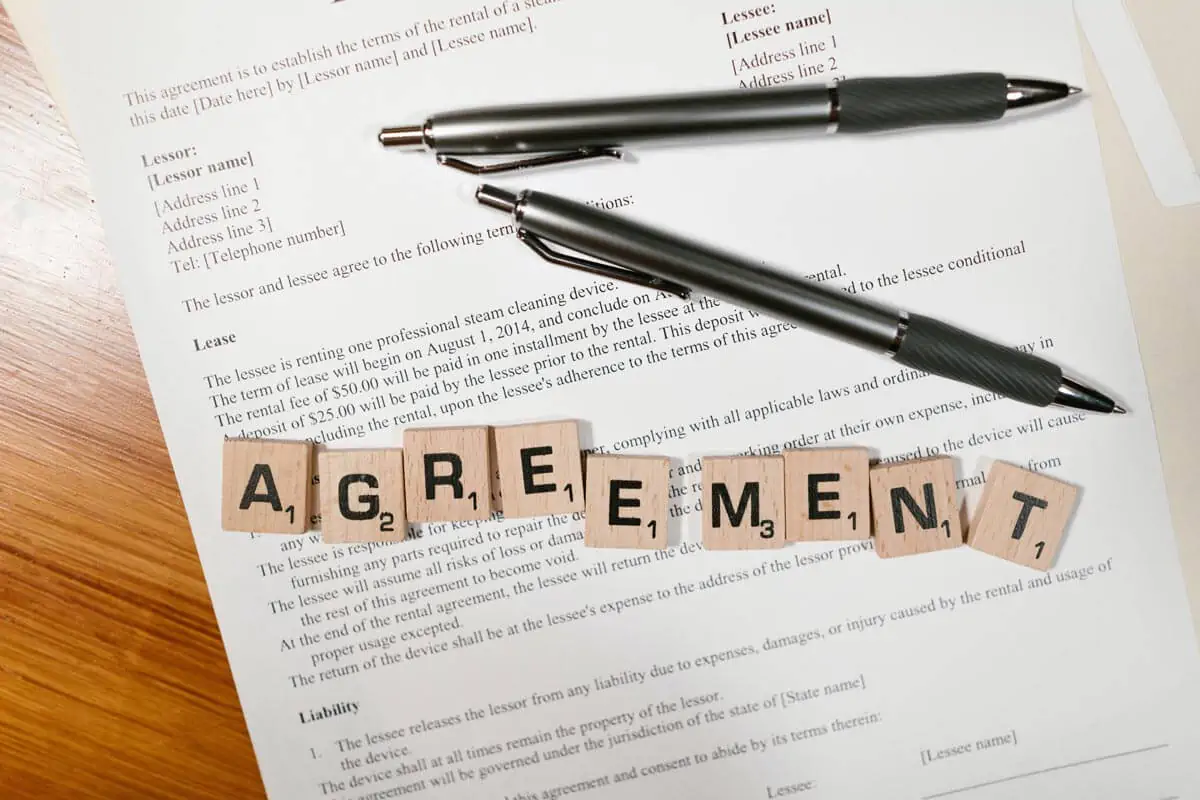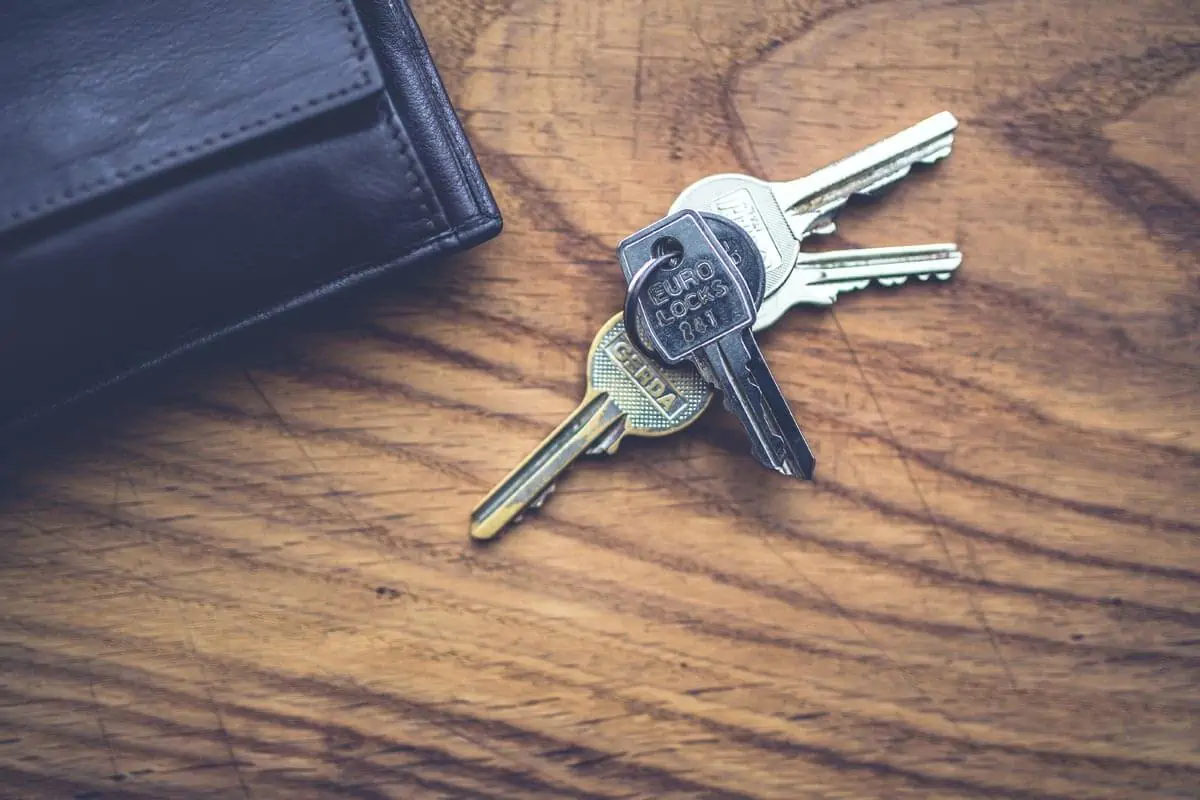10 Things You Should Look for in a Monthly Rental Agreement
Lease is rather important. Rather than waiting a long time to find a long-term renter, condo owners would rather take advantage of the renting needs of foreigners needing temporary homes to fill in the vacancies. A lot of condo owners who use their units as rentals have ventured into the short-term lease market, in which they agree to let tenants stay there for three months or less. Also, you can opt for a long-term lease for six months or more which is usually signed directly with a private landlord, the condo unit owner.
For foreigners who either visit the Philippines for pleasure or business, you can opt to lease your condo on a short-term basis. This is more favorable to them than pricey hotel rooms.
 Photo courtesy of RODNAE Productions via Pexels
Photo courtesy of RODNAE Productions via Pexels
What is the term of the lease?
1. Long-term lease
- The lease is for six months or more and is usually signed directly with a private landlord, who is the condo unit owner. The owner can agree to a shorter stay (up to six months) and still maintain long-term lease terms, depending on the negotiation.
- A security deposit is required. The amount will depend on the landlord but can be open to negotiation. The rental price does not include administration fees and utilities.
- Rented units can be fully or semi-furnished. Before moving in, the renter can be given a document or any proof of turnover protocol that discusses the condition of the unit and an inventory of existing furniture and other items.
2. Short-term Lease
- The lease is for three months or less. A security deposit is usually waived for a short-term stay.
- Units are usually fully furnished and ready for moving in. Renters can enjoy the use of basic furniture and utilities of condo living such as TV, washing machine, refrigerator, and internet connection.
- Regular housekeeping can be arranged. In some cases, fresh linen is provided daily, just like in a hotel or serviced apartment.
- The rental price is all-inclusive and the tenant does not have to worry about paying utilities and other extra bills.
The following are the pros and cons of each term of lease:
1. Short -term lease
- PRO: It offers more flexibility for the renter. This is definitely a plus for people who really don’t plan to stay in the area for the long term. If you’re a foreigner on a brief vacation or an employee who keeps getting transferred from office to office, renting short-term is a more practical option. This is great for those who have just moved into a city and prefer to get to know the place first before considering permanent residence.
- PRO: You can break your lease for little or no extra cash. Since you’re not locked in a long-term agreement, you can easily move out of the need for relocation arises without having to shell out penalty money.
- PRO: You can easily negotiate a long-term agreement if you decide to stay. If your payments are consistent and you’re generally a good tenant, the landlord will not hesitate to convert your lease to a long-term agreement.
- CON: Leases are generally more expensive compared to long-term agreements. Your wallet will definitely feel the pain if you extended your stay and continue paying the short-term lease price.
- CON: The landlord can terminate your lease anytime. He can also take advantage of the flexible terms by offering your unit to another renter to move in once your lease is up. Since you’re not locked in a contract, he can also raise the rent anytime. He can also change the terms of the lease just as easily.
- CON: It can be a dent in your credit score. If you live in a country in which credit score is a big deal, then be prepared for a backlash if you continue to be a short-term renter. This could be a disadvantage when you deal with future landlords since it can be a hazard to have renters who are always on the go.
2. Long-term lease
- PRO: There is rent control. The landlord can’t raise rents within the period of your contract.
- PRO: You have to pay your own utilities, which can be a pro or con depending on your usage. If you’re careful with your utilities, you may end up paying less for water and electricity as compared to the inclusive amount that you pay for short-lease
- PRO: The landlord can’t evict you anytime he pleases. The locked-in period works to your advantage here.
- CON: The complex nature of long-term leases can make for a slower negotiation process. This is especially frustrating when trying to figure out a deal that satisfies everyone.
- CON: When you sign a long-term commercial lease, you lack the flexibility to move into a different market or to expand into a new location.
- CON: Signing a long-term commercial lease means you will be paying rent for a long time. This can be a huge burden for a small business especially if there is an unforeseen run of low revenue.
Is the rental rate inclusive of taxes and other charges?
You may be expected to pay monthly homeowner’s dues and other utilities depending on the length of your stay. If you're only staying for a few days or weeks, though, the tariff will almost certainly be all-inclusive. However, before committing to rent a property, make sure to clarify costs and dues with the owner. You can attempt to work something out. Lastly, if you are responsible for utilities, find out what the prior renter(s) paid on average to get an idea of how much the average rate on the utilities is.
 Photo courtesy of Monstera via Pexels
Photo courtesy of Monstera via Pexels
When will the security deposit be refunded?
Every homeowner has their own term for deposits, such as: “One month deposit to be paid two months in advance”. If you plan on remaining for several months to a year, you will most certainly be forced to make an upfront payment. Conversely, if you only need the apartment for a few days, then you will most likely pay daily fees which normally cost more.
So, in order to secure your rent, you must discuss the “what ifs” of the contract. What if you cannot finish the term? What if you want to extend? Is the deposit refundable?
Why is going over the inventory essential?
The majority of the temporary and short-term condominiums are frequently equipped. You must know, however, that the term “furnished” does not mean everything is included. It simply means that it includes everything you need to live comfortably, such as a bed, a dining table, cooking range, TV set, sofa, air conditioning unit, refrigerator, water-heater, etc. And while you might get a bathroom, a pool table is highly unlikely to be included in the term “furnished”.
Can I sublease premises?
Renting out a property in the Philippines can be a bit tricky. A lessor needs to be specific with the terms of the contract, otherwise, lessees may raise the silence on certain provisions as defense. Take for example subleasing in which a lessee rents out the premises, partially or fully, to a third person. Essentially, there will be two agreements: one between the lessor/landlord and the lessee and another involving the lessee/sub-lessor and the sublessee. Unless the contract allows subletting or you seek the consent of your lessor, you are prohibited from sub-leasing the premises. Check out Republic Act No. 9653 or the Rent Control Act of 2009. Sub-leasing the property in contravention of the lease agreement and without the consent of the lessee is a breach subject to extrajudicial termination of the lease and the lessor's right of ejection.
 Photo courtesy of Kaboompics via Pexels
Photo courtesy of Kaboompics via Pexels
Can I renew the contract?
Your month-on-month lease contract should have a provision for renewal or extension of the lease. The stipulations shall indicate the period you're supposed to signify your intent. This may be at least five days before the expiry date. It should also explicitly inform you of the methods to express your intent such as by signing a new contract or extension form, whichever is applicable.
What are the repercussions of a pre-termination of lease?
Pre-termination of a month-on-month agreement may result in the forfeiture of the rent you've already paid. This means that you cannot get back the rest of the rent for the unused period. Pre-termination of the contract is also a breach and may be subject to the penalties provided for under the provisions of the contract.
Can I bring pets?
Like in any other business premises, there would always be rules against bringing pets. When renting a condo, you must follow both the condo management's and the homeowner's rules. Are pets permitted? Can you invite others over? Are you able to throw a party? What about waste regulations? Or, if applicable, a curfew? Before signing a contract, you must resolve these issues with the homeowner.
 Photo courtesy of freestocks.org via Pexels
Photo courtesy of freestocks.org via Pexels
Can my lessor enter the leased premises?
Yes. As a general rule, no one, not even the lessor, may enter your home without your consent. This is by virtue of the Castle Doctrine which provides the occupant with the right to defend his home from intruders. It doesn't matter if you own your home or merely rent it. However, this rule is subject to limitations. Under a lease contract, the lessor may enter the premises in the event of abandonment, dangerous substances or activities that pose danger to people and property, and fortuitous events. The lessor or his/her authorized representative may have the right to inspect the leased premises in your presence.
In case of disputes, where should I go?
The lease contract shall provide for measures to settle disputes and the proper venue for litigation, if necessary. Take efforts to settle the matter without going through litigation. If you have any leasing issues, reach out to your lessor first. Then, contact the admin office in your condo community for possible mediation/conciliation. It's advisable to exhaust all non-adversarial remedies before seeking recourse from the courts.
 Photo courtesy of Mart Production via Pexels
Photo courtesy of Mart Production via Pexels
A condo for rent in the Philippines is a sought-after accommodation among students, working professionals, families, and balikbayans. The location of condo communities, in the center of business and commercial hubs, allows you to better maximize your time. You're also provided access to lifestyle amenities that help you decompress and truly enjoy city living. But don't sign a lease contract just yet. Take the time to read through the fine print and have all your queries answered. One way of attaining a harmonious community living is preventing disputes with your lessor by simply understanding the ins and outs of your lease agreement.
Key takeaways
When leasing a property, you must always remember whether to opt for a long-term or short-term lease. This is important because there are different advantages and disadvantages of Short-term Lease and long-term leases.
Before committing to a lease, take note of the costs and other expenses particularly the rental and other charges as well as the required deposits as these will make or break the lease contract if you are amenable to the costs and charges of the lessor.
In case of any problems in the lease contract, the lease contract shall provide for measures to settle the dispute as well as the venue for litigation. However, it is very important that you settle the matter out of court as taking the matter to court is not only taxing your finances but also very stressful.
To learn more about DMCI Homes Leasing's rental services, log on to www.dmcihomes.com or call (632) 5324-8888. You can also check out https://leasing.dmcihomes.com/ for more information.
News and other updates are also posted on the company’s official website and its social media accounts on Facebook, X, Instagram, and YouTube.










